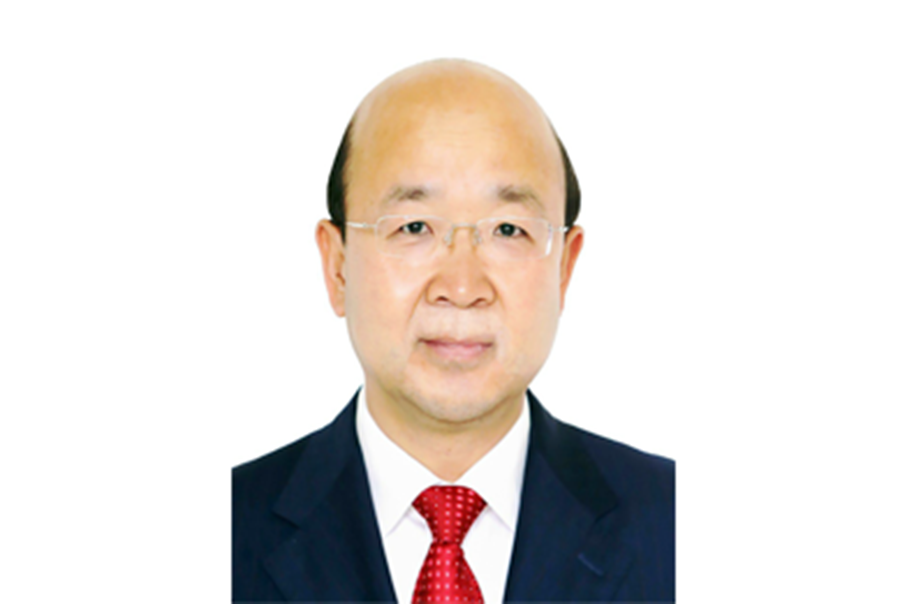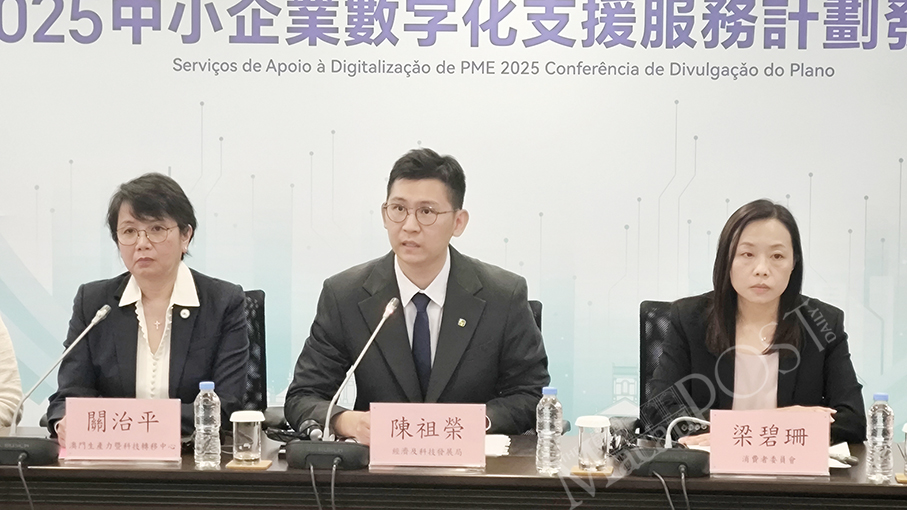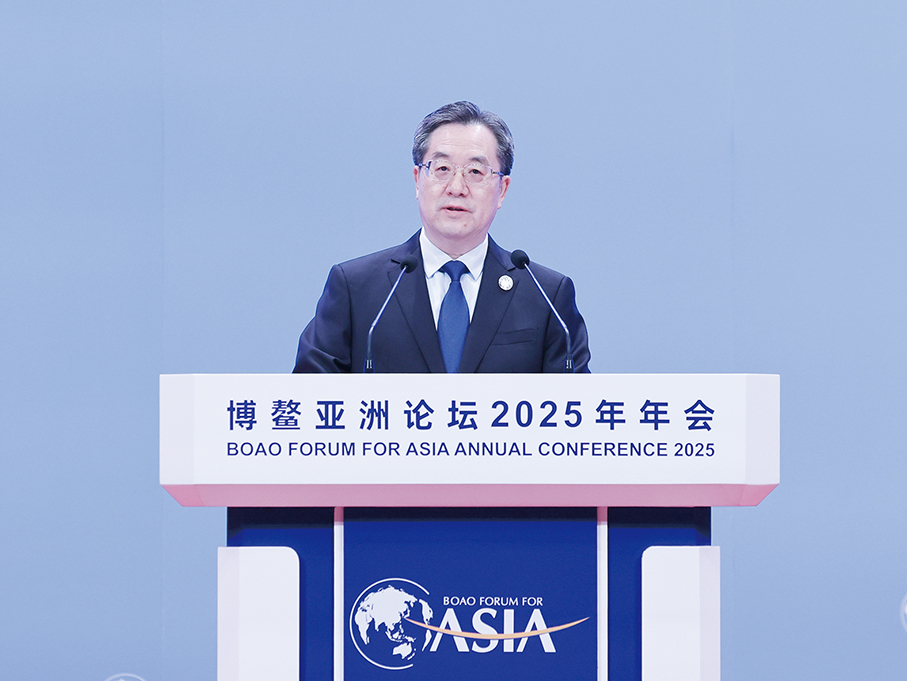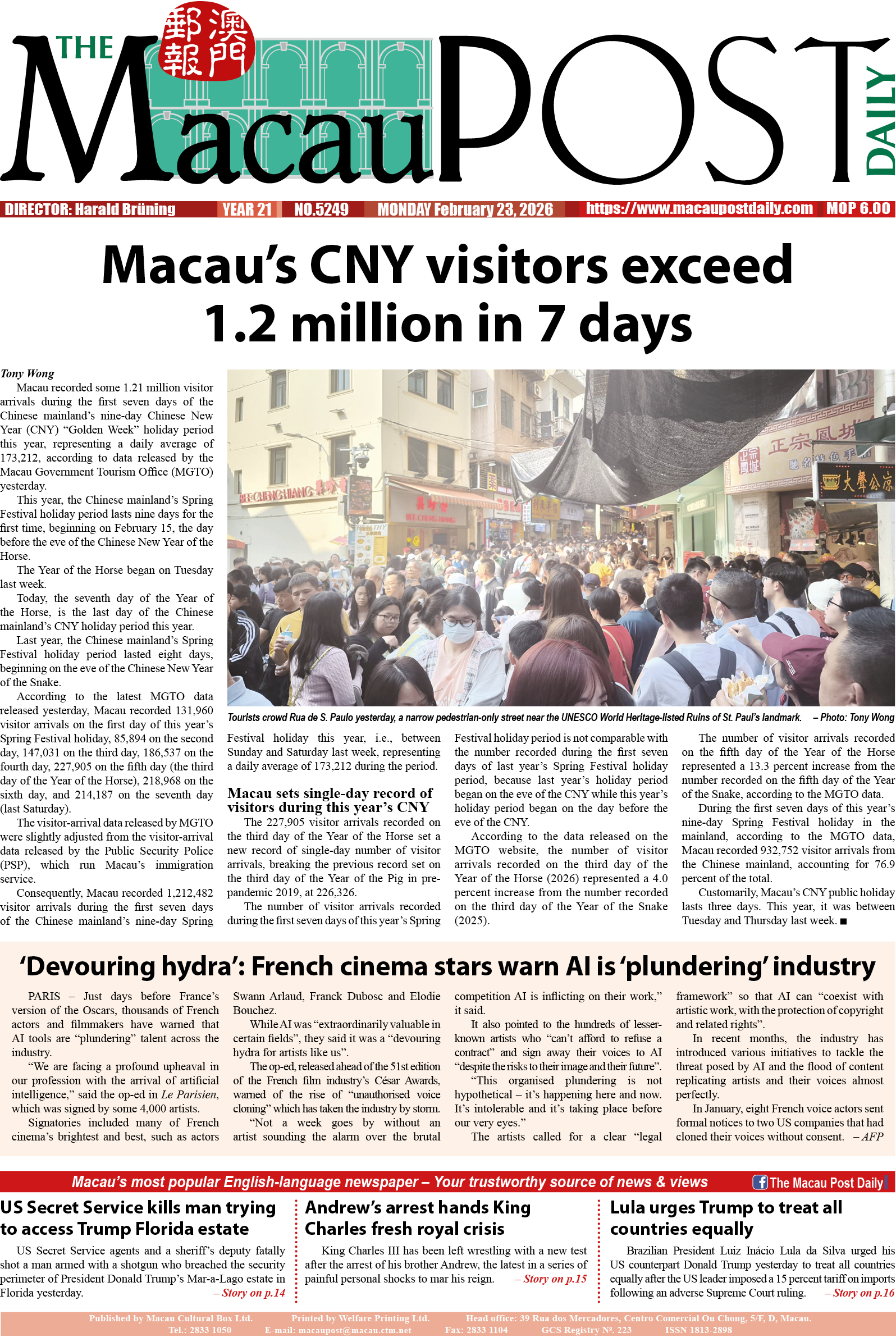By Commissioner Liu Xianfa
The 20th Central Committee of the Communist Party of China (CPC) has just successfully concluded its third plenary session in Beijing. The Resolution of the Central Committee of the Communist Party of China on Further Deepening Reform Comprehensively to Advance Chinese Modernization is the most important outcome of the Session, which is a new blueprint for China’s reform and opening up, sending a strong message to the world on China’s steadfast commitment to reform and opening up as well as creating more opportunities for the world in the new era.
Reform and opening up have been crucial to the ause of the Party and the people, enabling us to catch up with the times in great strides. The Third Plenary Session of the 18th CPC Central Committee ten years ago was of epoch-making significance. It marked the start of a new journey of comprehensively deepening reform in the new era with systematic and holistic plans, thus paving the way for a brand new stage in China’s reform and opening up endeavors. At that Session, the Central Committee set up the Commission on Comprehensively Deepening Reform, with General Secretary Xi Jinping taking the lead and chairing 72 meetings of the commission since then. Over 2,000 programs have been introduced to strengthen, broaden and deepen reform. Reform measures in various sectors have brought China’s openness to a significantly higher level. From establishing 22 Pilot Free Trade Zones and the Hainan Free Trade Port, the signing and entry into force of the Regional Comprehensive Economic Partnership, to the building of a globally-oriented network of high-standard free trade areas, from repeatedly shortening the negative list for foreign investment to reducing market access restrictions in telecommunications, healthcare and other services sectors, from promoting high-quality Belt and Road cooperation to establishing international cooperation platforms for trade and economic exchanges, such as the China International Import Expo, China International Fair for Trade in Services, and the China International Consumer Products Expo, these important measures to expand high-quality opening up benefit the international community through China’s development, and give the world reason for optimism about China’s growth outlook. China has remained the world’s largest trader in goods for seven years running, and the world’s largest exporter and second-largest importer for 15 consecutive years. It has been among the world’s top three sources of outbound investment for 11 years in a row. 155 countries and regions around the world are beneficiaries of the funding that China provides.
As Chinese modernization has been advanced continuously through reform and opening up, it will surely embrace broader horizons through further reform and opening up. The present and the near future constitute a critical period for our endeavor to build a great country and move oward national rejuvenation on all fronts through Chinese modernization. o deal with complex environments both at home and abroad, adapt to the new round of scientific and technological revolution and industrial transformation, and live up to the new expectations of our people, it is vital that we continue to advance reform. It was pointed out at the Third Plenary Session of the 20th CPC Central Committee that the overall objectives of further deepening reform comprehensively are to continue improving and developing the system of socialism with Chinese characteristics and modernize China’s system and capacity for governance. By 2035, China will have finished building a high-standard socialist market economy in all respects, further improved the system of socialism with Chinese characteristics, generally modernized our system and capacity for governance, and basically realized socialist modernization. All of this will lay a solid foundation for building China into a great modern socialist country in all respects by the middle of this century. To steadily advance reform, we will focus on building a high-standard socialist market economy, advancing whole-process people’s democracy, developing a strong socialist culture in China, raising the people’s quality of life, building a Beautiful China, advancing the Peaceful China Initiative to a higher level, and improving the Party’s capacity for leadership and long-term governance. In order to realize these reform goals, the Resolution elaborates on reform plans in specific fields such as the economy, politics, culture, society, environmental conservation, national security, and national defense and the military, involving over 300 concrete measures. It has been made clear that the reform tasks laid out in the Resolution shall be completed by the time the People’s Republic of China celebrates its 80th anniversary in 2029.
Chinese modernization is the modernization of peaceful development. The Resolution solemnly states that China remains firm in pursuing an independent foreign policy of peace nd is dedicated to promoting a human community with a shared future. e will stay committed to the common values f all humanity, pursue the Global Development Initiative, the Global Security Initiative, and the Global Civilization Initiative, and call for an equal and orderly multipolar world and universally beneficial and inclusive economic globalization. We will deepen institutional reforms related to the work of foreign affairs and get involved in eading the reform and development of global governance system. e will resolutely safeguard China’s sovereignty, security, and development interests nd oster a favorable external environment for further deepening reform comprehensively to advance Chinese modernization. In addition, more development opportunities will emerge because of China’s reform and Chinese modernization. The important reform measures enshrined in the Resolution include steadily expanding institutional opening up, deepening the foreign trade structural reform, further reforming the management systems for inward and outward investment, optimizing the layout for regional opening up, and improving the mechanisms for high-quality cooperation under the Belt and Road Initiative, among others. I believe that the implementation of these measures will enhance various institutions and mechanisms, remove obstacles, provide a steady source of dynamism for Chinese modernization, and create more opportunities for China and the rest of the world to deepen mutually beneficial cooperation and thrive and prosper together. The first half of 2024 has seen China’s economy doing better in speed and quality, with GDP growing by 5% and investment in high-tech sectors rising by 10.6%. The International Monetary Fund has revised up its forecast for China’s economic growth rate in 2024. The global business community has also expressed stronger optimism about China’s economic prospects, with new foreign enterprises in China increasing by 14.2%. China welcomes all countries to actively integrate into the Chinese market and share China’s development opportunities, so as to achieve common development and deliver benefits to all the people in the world.
Macao plays an integral part in China’s further comprehensively deepening reform. The Resolution underlines supporting Hong Kong and Macao in building themselves into international hubs for high-caliber talent, improving relevant mechanisms to see the two SARs playing a greater role in China’s opening up to the outside world, and encouraging cooperation between Guangdong, Hong Kong and Macao in the Greater Bay Area by promoting loser alignment of rules and mechanisms. The Office of the Commissioner of the Ministry of Foreign Affairs will fully support all sectors of the society in Macao in implementing the spirit of the Third Plenary Session of the 20th CPC Central Committee by further leveraging Macao’s unique advantages endowed by the“One Country, two Systems”and its role as a platform for international cooperation. We will also give a boost to Macao’s efforts to develop new quality productive forces, promote appropriate economic diversification in compliance with its 1+4 plan through technological innovation and industrial upgrading, and develop the In-depth Cooperation Zone in Hengqin and the Greater Bay Area. Since its return to the motherland 25 years ago, Macao has enjoyed the biggest constitutional advantage-“One country, two systems”, abundant horizons for development, a highly internationalized business environment, the strong economic foundation, the advantage of multiculturalism, and a traditional passion of patriotism and loyalty. I believe that with these advantages and through embracing the new opportunities created by further deepening reform and opening up, Macao’s golden business card as an international metropolis can and will be polished even brighter!
Liu Xianfa, who holds a doctoral degree in Management Science, is the Commissioner of the Ministry of Foreign Affairs (MFA) of the People’s Republic of China (PRC) in the Macao Special Administrative Region (MSAR). A former assistant minister of foreign affairs, Liu, born in Qingdao, Shandong Province, in 1963, has headed the Office of the Commissioner of the MFA of the PRC in the MSAR since 2021.

Undated file photo of Commissioner of the Ministry of Foreign Affairs (MFA) of the People’s Republic of China (PRC) in the Macao Special Administrative Region (MSAR) Liu Xianfa – Photo: Courtesy of OCMFA








